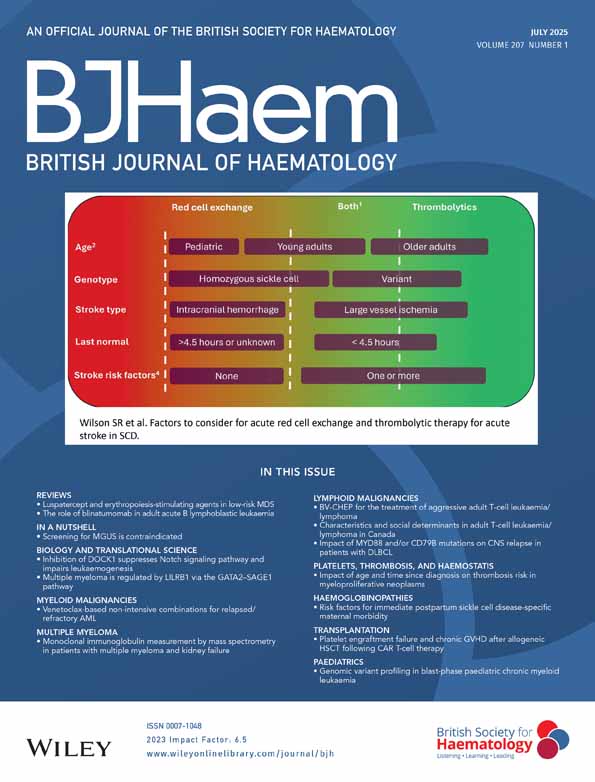Predicting the severity of rhesus alloimmunization: monocyte-mediated chemiluminescence versus maternal anti-D antibody estimation
Abstract
Summary. Anti-D haemolytic antibody concentration and chemiluminescence (CLT) opsonic index was measured in maternal blood obtained from 20 alloimmunized pregnancies at 17–28 weeks undergoing intrauterine fetal blood sampling for the estimation of fetal haemoglobin concentration. The fetal haemoglobin concentration. The fetal haemoglobin concentration was significantly associated with the maternal serum CLT opsonic index (r =−0.566, P < 0.01) but not with the maternal anti-D concentration (r =−0.329). The data of this study indicate that measurement of maternal serum CLT opsonic index may be more accurate than anti-D quantification in providing non-invasive prediction of the degree of fetal anaemia.




